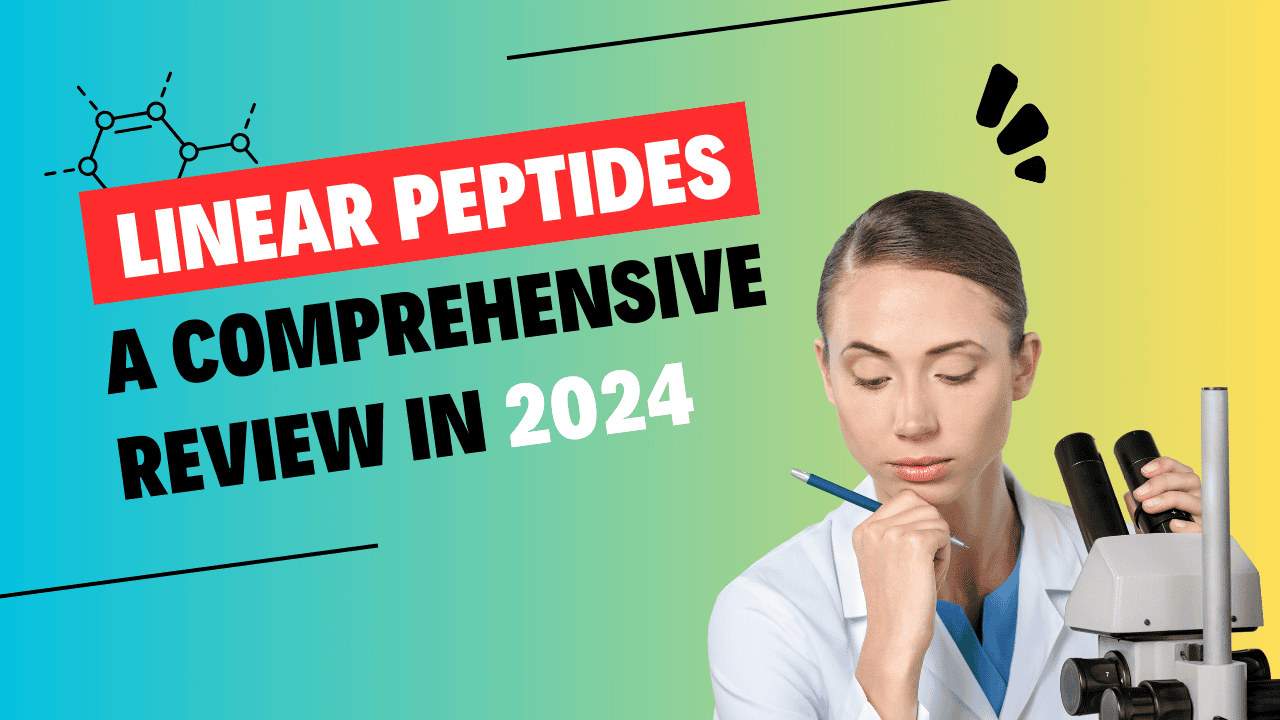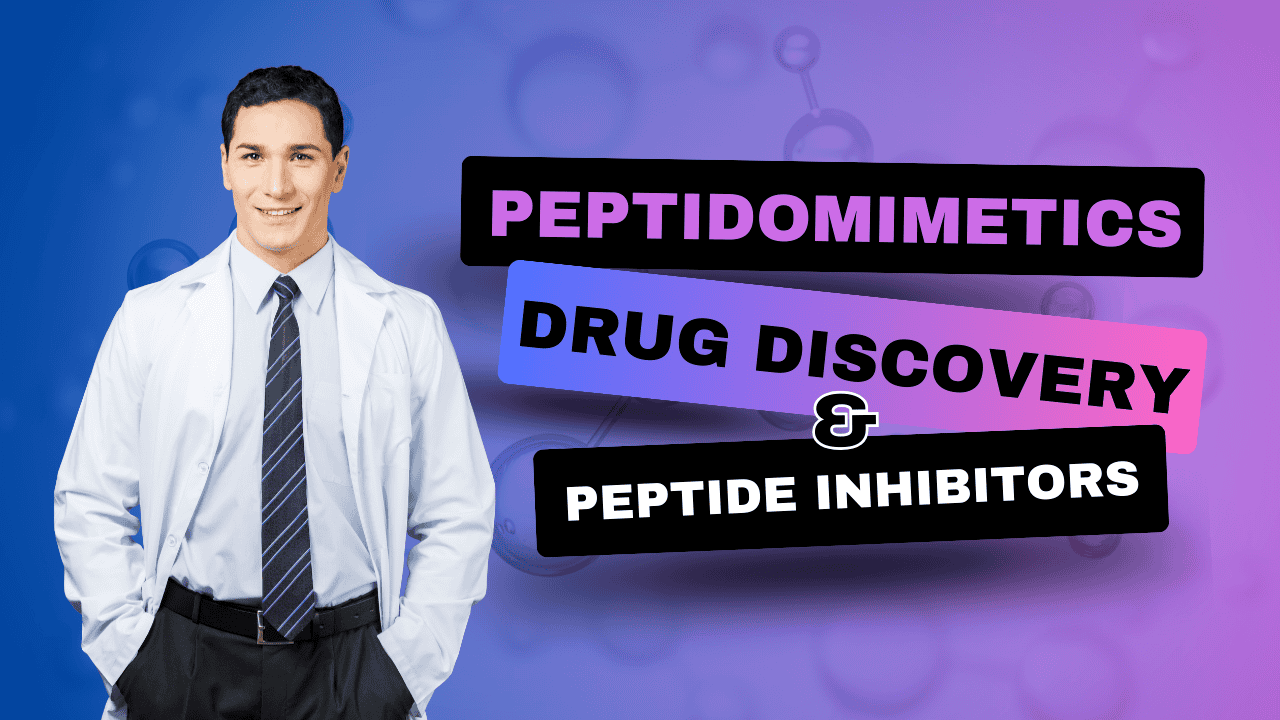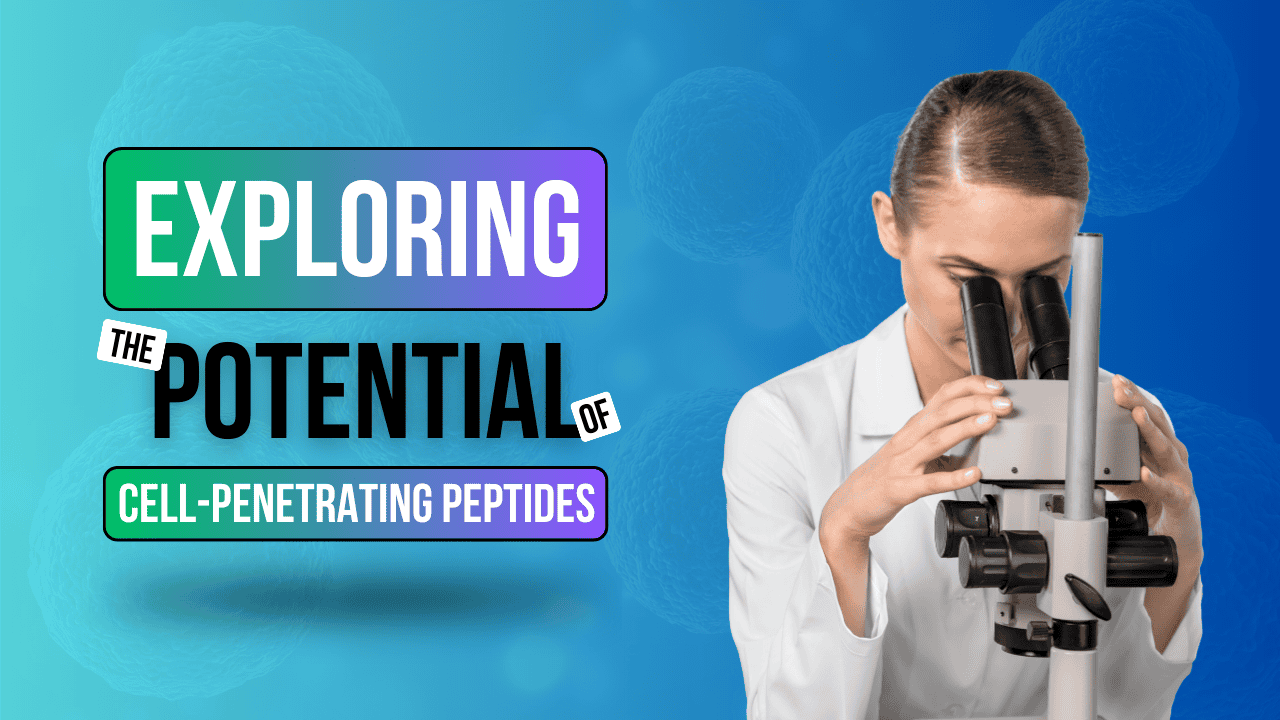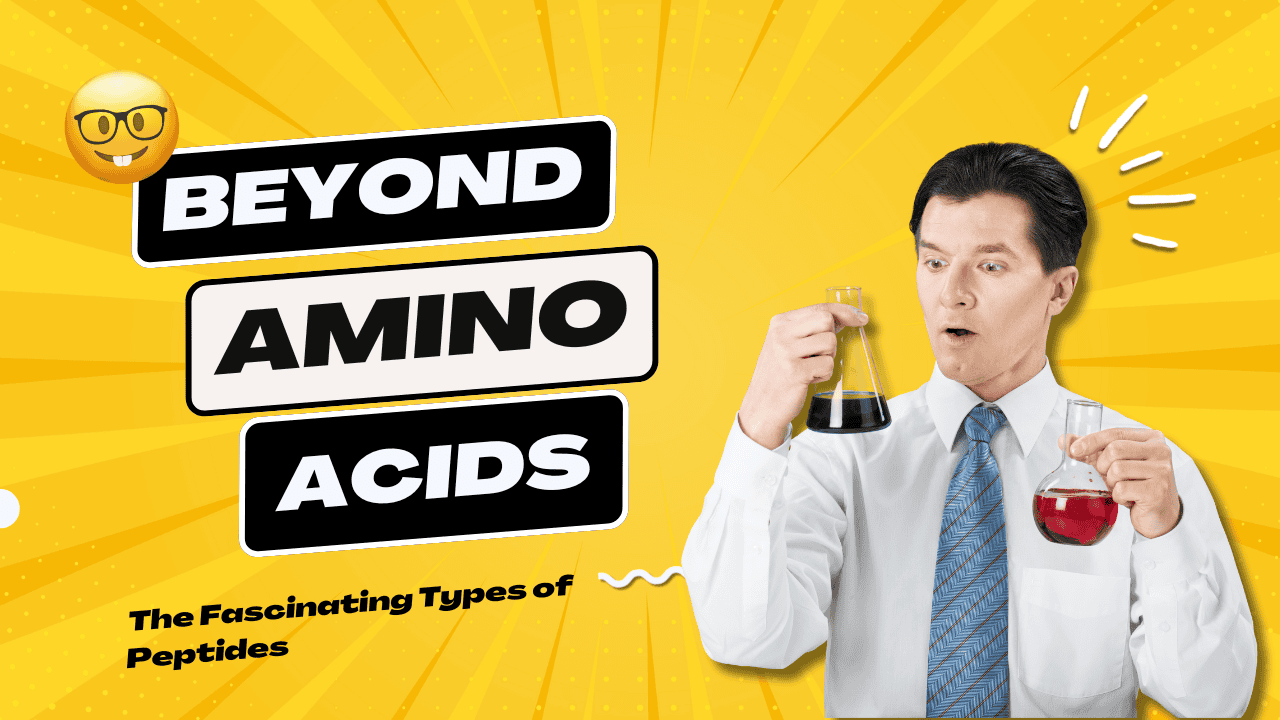

Peptide hormones are small but mighty molecules that play a crucial role in regulating various bodily functions.
From controlling our metabolism to influencing our mood, these hormones are indispensable.
This article dives into the fascinating world of peptide hormones, exploring their structure, function, and impact on human health.
Trust me, whether you’re a biology buff or just someone curious about how your body ticks, you’ll find this journey worthwhile.
Peptide hormones are essentially chains of amino acids that act as messengers in the body. Unlike steroid hormones, which are lipid-based, peptide hormones are water-soluble and less likely to cross cell membranes. This fundamental difference influences how these hormones operate.
The key difference between peptide hormones and steroid hormones lies in their chemical structure and mechanism of action. While steroid hormones can pass through cell membranes easily due to their lipid nature, peptide hormones rely on receptors located on the cell surface to exert their effects.
Peptide hormones serve a myriad of functions. They regulate growth, metabolism, and even our stress responses. For example, insulin, a well-known peptide hormone, helps regulate blood sugar levels. These hormones act like the body’s internal control system, ensuring everything runs smoothly.
A peptide hormone consists of a short chain of amino acids. These chains vary in length, and their specific sequence determines the hormone’s function. Think of them as words made up of letters — the combination of amino acids spells out a specific “message” for the body.
Unlike steroid hormones, which can slip through cell membranes, peptide hormones must bind to receptors on the cell surface. This binding triggers a cascade of intracellular events, known as signal transduction, that carry out the hormone’s function.
Signal transduction is the process by which a peptide hormone communicates its message inside the cell. Once the hormone binds to its receptor, it activates a series of molecular events that alter the cell’s behavior. It’s like flicking a domino that leads to a chain reaction.
Peptide hormones bind to specific receptors on the cell surface. This interaction is very much like a key fitting into a lock. Once the hormone binds, it changes the receptor’s shape, initiating a signal transduction pathway, ultimately leading to the desired cellular response.
Peptide hormones regulate a variety of bodily functions, from growth and metabolism to stress responses. They work by activating or inhibiting specific pathways within cells, ensuring that each cell functions optimally.
Peptide hormones are indispensable in the endocrine system. They act as messengers, linking various endocrine glands and coordinating their activities to maintain homeostasis. Essentially, they ensure that the endocrine system functions as a well-oiled machine.
Polypeptide hormones are a type of peptide hormone composed of longer chains of amino acids. These hormones include growth hormone and insulin, both critical for growth and metabolism.
Examples of peptide hormones include insulin, glucagon, and growth hormone. Each of these hormones has a specific function, from regulating blood sugar levels to promoting tissue growth.
Receptors recognize peptide hormones through specific binding sites compatible with the hormone’s shape and structure. It’s very much like a puzzle piece fitting into its matching slot.
Receptors are crucial for hormone action. They serve as the hormone’s entry point to the cell, initiating a cascade of intracellular signals that carry out the hormone’s function. Without receptors, peptide hormones would be like messages floating in a bottle with no recipient.
Enzymes play a crucial role in the regulation of peptide hormones. They are responsible for synthesizing and breaking down these hormones, thereby controlling their activity levels in the body.
Protein kinase enzymes are often involved in the regulation of peptide hormones. These enzymes add phosphate groups to proteins, altering their function and enabling the cellular response to hormone signals.
Peptide hormones are regulated through complex feedback mechanisms. The body carefully monitors hormone levels and adjusts their secretion accordingly to maintain balance.
Factors that influence peptide hormone levels include diet, stress, and overall health. For example, insulin levels are directly affected by blood sugar levels, which in turn are influenced by what and when you eat.
Peptide hormones in humans include insulin, glucagon, and calcitonin. Each of these hormones has vital functions, from regulating blood sugar to maintaining calcium levels in the body.
Human peptide hormones function by binding to specific receptors on target cells, initiating a signal transduction pathway that alters cell behavior. It’s like flipping a light switch — the action might seem small, but it sets off a chain of events that illuminate the room.
Growth factors are a type of peptide hormone involved in cellular growth, development, and healing. Growth hormone is a prime example, playing a critical role in childhood development and tissue repair.
Peptide hormones like growth factors stimulate cell division, growth, and differentiation. They ensure that tissues develop correctly and heal efficiently, making them essential for growth and development.
Diseases linked to peptide hormone imbalance include type 2 diabetes mellitus, where insulin regulation goes awry, and growth hormone deficiencies, affecting development and metabolism.
Peptide hormones are used in treatments for a variety of conditions, such as diabetes and growth disorders. Insulin injections, for instance, are crucial for managing diabetes.
Recent research has focused on discovering novel peptide hormones with potential therapeutic uses. Advances in biotechnology have made it easier to synthesize and study these hormones.
Future trends in peptide hormone research include personalized medicine and targeted therapies. Understanding how these hormones interact with their receptors could lead to more effective treatments.
Signal transduction pathways amplify the message initiated by peptide hormone binding, ensuring a strong and specific response. It’s akin to a megaphone amplifying a speaker’s voice.
Different peptide hormones can activate distinct signal transduction pathways. For instance, insulin and glucagon activate pathways that have opposite effects on blood sugar levels.
Synthetic peptide hormones are developed through advanced biotechnological methods, allowing scientists to create hormones identical to those naturally occurring in the body.
Synthetic peptide hormones are used in medical treatments, such as insulin for diabetes and growth hormone for growth deficiencies. They provide reliable, consistent hormone levels for patients.
Types of peptide hormone receptors include G-protein coupled receptors and tyrosine kinase receptors. Each type has specific binding characteristics and activation mechanisms.
Mutations can alter the function of peptide hormone receptors, leading to diseases. For example, a faulty insulin receptor can result in type 2 diabetes, emphasizing the importance of these receptors.
Peptide hormones differ from steroid hormones in structure and function. While peptide hormones are water-soluble and bind to cell surface receptors, steroid hormones are lipid-soluble and can pass through cell membranes.
Peptide hormones’ primary uniqueness lies in their structure and mechanism of action. They operate through specific receptor-mediated pathways and have diverse functions, from regulating metabolism to controlling growth.
The molecular mechanisms involve the binding of the peptide hormone to its receptor, initiating a signal transduction pathway. This leads to changes in cellular activities, such as gene expression or enzyme activation.
Advanced technologies like bioinformatics, molecular biology techniques, and high-throughput screening are used to study the molecular mechanisms of peptide hormones. These technologies help us understand how these hormones function at a molecular level.
Peptide hormones have therapeutic uses in treating conditions like diabetes (using insulin) and growth hormone deficiency. They are also explored for treating metabolic disorders and even some cancers.
Peptide hormones are generally administered via injections or infusion pumps, ensuring that they enter the bloodstream directly for rapid action.
Environmental factors, such as diet, pollution, and stress, can influence peptide hormone levels. For instance, high-stress environments can disrupt hormone balances, impacting overall health.
Environmental disruptions can lead to conditions like hormone imbalances and metabolic syndromes. Understanding these impacts is crucial for developing effective interventions.
Peptide hormones are metabolized through enzymatic processes in the liver and kidneys. Enzymes break down these hormones into their constituent amino acids for excretion or reuse.
Metabolism regulates the activity levels of peptide hormones, ensuring that they are present in the right amounts at the right times. This balance is essential for maintaining homeostasis.
Endocrine disruptors are chemicals that can interfere with hormone function. They mimic or block natural hormones, disrupting the body’s endocrine balance.
Endocrine disruptors can alter the levels and function of peptide hormones, leading to disorders. For example, pollutants can mimic or inhibit insulin, affecting glucose metabolism.
Peptide hormones like adrenocorticotropic hormone (ACTH) are released in response to stress, preparing the body for a fight-or-flight reaction. They regulate stress responses by altering physiological processes.
Chronic stress can lead to sustained high levels of stress hormones, impacting health negatively. This can result in metabolic issues and compromised immune function.
Nutrition directly affects the levels and function of peptide hormones. For example, consuming carbohydrates raises blood sugar levels, prompting the release of insulin to manage glucose uptake.
Dietary factors such as calorie intake, macronutrient balance, and meal timing influence peptide hormone activity. Balanced nutrition is vital for maintaining healthy hormone levels.
Peptide hormones in animals function similarly to those in humans, regulating growth, metabolism, and other critical processes. The mechanisms of action are remarkably conserved across species.
While the basic mechanisms are similar, there are differences in the amino acid sequences and specific functions of peptide hormones between species. These variations adapt each organism to its unique physiological needs.
Genes dictate the synthesis and regulation of peptide hormones. Genetic mutations can lead to imbalances or dysfunctions in hormone production, resulting in conditions like type 2 diabetes.
Genetic disorders such as Congenital Hypothyroidism or Pituitary Dwarfism are linked to peptide hormone imbalances. These conditions underscore the importance of genes in maintaining hormonal health.
Peptide hormones are measured using techniques like immunoassays, mass spectrometry, and ELISA. These methods quantify hormone levels in blood, plasma, or other body fluids.
Technologies like mass spectrometry, immunoassays, and high-performance liquid chromatography (HPLC) are crucial for detecting and quantifying peptide hormones. They ensure accurate diagnosis and monitoring.
Peptide hormones were discovered gradually through the efforts of multiple scientists. For instance, insulin, one of the first peptide hormones discovered, revolutionized the treatment of diabetes.
Our understanding of peptide hormones has evolved from basic identification to detailed insights into their molecular mechanisms. Advances in technology and research have significantly expanded our knowledge.
Drug development often targets peptide hormone receptors to modulate their activity. For example, diabetes drugs might enhance or mimic insulin binding to its receptor.
Drugs like insulin analogs and GLP-1 receptor agonists have been developed to manage diabetes by targeting specific peptide hormone receptors.
Peptide hormones like growth hormones and insulin-like growth factors decline with age. This reduction can impact metabolism, muscle mass, and overall health.
Peptide hormones play a critical role in aging, influencing processes like cell regeneration, metabolism, and muscle maintenance. Imbalances or declines can contribute to age-related health issues.
Challenges include the complexity of hormone interactions, the need for precise measurement technologies, and understanding the long-term effects of hormonal therapies.
Advances in molecular biology, biotechnology, and analytical techniques are helping to overcome these challenges. Collaborative research efforts also play a critical role in addressing the complexities.
New technologies like CRISPR for gene editing and high-throughput screening methods are revolutionizing peptide hormone research. These tools enable more precise and efficient studies.
Technological advances have enabled detailed insights into hormone mechanisms and interactions, leading to better diagnostic tools, treatments, and preventive measures for hormone-related conditions.
Peptide hormones can influence cancer development and progression. For instance, insulin-like growth factors can promote tumor growth by stimulating cell proliferation.
Peptide hormones are being explored as therapeutic agents and tumor markers in cancer treatment. They offer potential for targeted therapies that minimize side effects.
Notable cases include type 1 and type 2 diabetes, characterized by insulin imbalance, and acromegaly, caused by excessive growth hormone production.
These cases have led to significant advances in understanding hormone regulation, the development of synthetic hormones, and targeted treatments, dramatically improving patient outcomes.
Personalized medicine uses genetic and molecular profiling to tailor treatments based on an individual’s unique hormonal imbalances, leading to more effective and customized therapies.
Personalized approaches can improve treatment efficacy, reduce side effects, and provide better management of chronic conditions by addressing individual hormonal needs.
Promising trends include exploring new peptide hormones, developing bioengineered hormones, and integrating AI in hormone research for advanced modeling and predictions.
In the next decade, peptide hormone research might focus on more personalized, gene-editing-based treatments, deeper understanding of hormonal interactions, and innovative therapeutic applications.
Peptide hormones are molecules composed of short chains of amino acids. These hormones are synthesized in the endoplasmic reticulum of cells and are essential for regulating various bodily functions. Examples include insulin and growth hormone.
Peptides act as signaling molecules in the body, facilitating communication between cells. They can secrete hormones, proteins, and enzymes that impact various physiological processes. Peptides play a crucial role in regulating metabolism, immune response, and tissue repair.
Peptide hormones can enhance athletic performance by promoting muscle growth and fat loss. Growth hormone and insulin-like growth factors are popular among athletes for their ability to improve recovery times and increase muscle mass.
Insulin is a peptide hormone. It is composed of a chain of amino acids and functions primarily to regulate blood glucose levels. Insulin operates by binding to specific receptors on the plasma membrane, promoting glucose uptake in cells.
Peptide hormones offer several benefits in sports, including improved muscle recovery, reduced muscle wastage, and enhanced overall performance. They can also help regulate metabolism and reduce recovery times post-exercise, making them valuable for athletes.
For athletes, peptides like growth hormone-releasing peptides (GHRPs) stimulate the secretion of growth hormone from the pituitary gland, aiding in muscle growth and recovery. They also enhance fat metabolism and overall athletic performance.
The primary purpose of peptide hormones is to act as messengers in the body, transmitting signals that regulate various biological functions. They influence growth, metabolism, and responses to environmental changes.
Peptides improve performance by promoting muscle growth, accelerating recovery, and enhancing endurance. For instance, growth hormone-releasing peptides boost the secretion of growth hormones, aiding muscle tissue repair and increasing strength.
A peptide hormone is a hormone composed of amino acids linked in a specific sequence. These hormones are crucial for various bodily functions, including growth, metabolism, and energy balance. They bind to receptors on the plasma membrane of target cells.
Dr. Richard DiMarchi is a distinguished expert in peptide therapeutics, with extensive experience in the design and development of peptide-based drugs. With over 30 years in peptide synthesis and research, Dr. DiMarchi has contributed significantly to the understanding of therapeutic peptides, especially in the treatment of diabetes and metabolic disorders. His work is highly regarded in the scientific community and has profoundly impacted the field of peptide therapeutics.
Dr. DiMarchi’s notable publications include:
Dr. DiMarchi’s excellence is recognized through numerous awards, including the prestigious American Peptide Society’s Bruce Merrifield Award, highlighting his authority and trustworthiness in peptide research.
Dr. Samir Mitragotri is a leading researcher in the field of peptide drug delivery systems. With a background in chemical engineering and biomedical sciences, Dr. Mitragotri has advanced our knowledge of how peptides can be efficiently delivered to target tissues and cells. His innovative work has opened new avenues for treating a wide range of diseases, including cancer and chronic illnesses.
Key publications by Dr. Mitragotri include:
Dr. Mitragotri’s work is characterized by his commitment to innovation and accuracy. He has received several prestigious awards, including the National Institute of Health’s Transformative Research Award, further affirming his expertise and the impactful nature of his research in the peptide domain.
Garczynski, S. F., Hendrickson, C. A., Harper, A., Unruh, T. R., Dhingra, A., Ahn, S., & Choi, M. (2019). Neuropeptides and peptide hormones identified in codling moth, Cydia pomonella (Lepidoptera: Tortricidae). Archives of Insect Biochemistry and Physiology, 101(4). https://doi.org/10.1002/arch.21587
Hirakawa, Y., Torii, K. U., & Uchida, N. (2017). Mechanisms and Strategies Shaping plant peptide hormones. Plant and Cell Physiology, 58(8), 1313–1318. https://doi.org/10.1093/pcp/pcx069
Okamoto, N., & Watanabe, A. (2022). Interorgan communication through peripherally derived peptide hormones in Drosophila. Fly, 16(1), 152–176. https://doi.org/10.1080/19336934.2022.2061834
Prothiwa, M., Syed, I., Huising, M. O., Van Der Meulen, T., Donaldson, C. J., Trauger, S. A., Kahn, B. B., & Saghatelian, A. (2014). Data-Driven synthesis of Proteolysis-Resistant peptide hormones. Journal of the American Chemical Society, 136(51), 17710–17713. https://doi.org/10.1021/ja5065735
Sanders, E. J., & Harvey, S. (2008). Peptide hormones as developmental growth and differentiation factors. Developmental Dynamics, 237(6), 1537–1552. https://doi.org/10.1002/dvdy.21573
Tager, H. S., & Steiner, D. F. (1974). Peptide hormones. Annual Review of Biochemistry, 43(1), 509–538. https://doi.org/10.1146/annurev.bi.43.070174.002453
Varamini, P., & Toth, I. (2016). Recent advances in oral delivery of peptide hormones. Expert Opinion on Drug Delivery, 13(4), 507–522. https://doi.org/10.1517/17425247.2016.1142526
ALL ARTICLES AND PRODUCT INFORMATION PROVIDED ON THIS WEBSITE ARE FOR INFORMATIONAL AND EDUCATIONAL PURPOSES ONLY. The products offered on this website are intended solely for research and laboratory use. These products are not intended for human or animal consumption. They are not medicines or drugs and have not been evaluated or approved by the FDA to diagnose, treat, cure, or prevent any disease or medical condition. Any form of bodily introduction is strictly prohibited by law.








Discount Applied Successfully!
Your savings have been added to the cart.